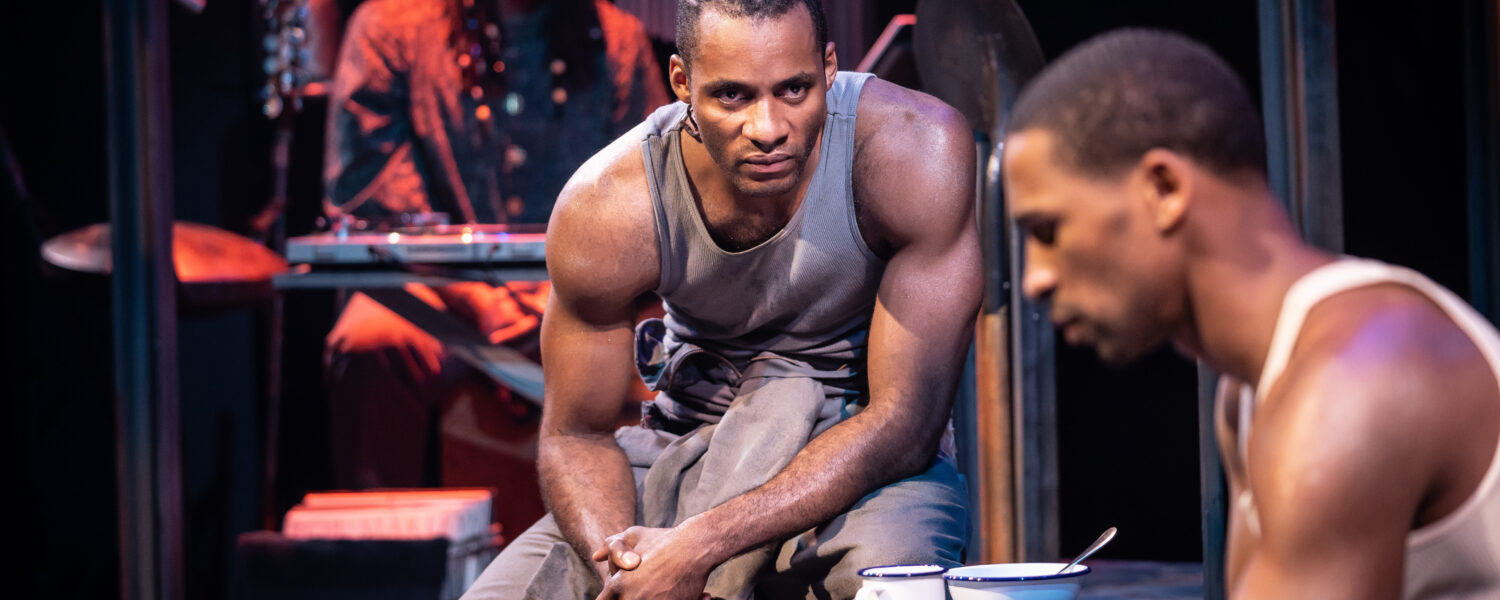Contact Us
American Players Theatre
5950 Golf Course Road
P.O. Box 819
Spring Green, WI 53588
(Map)
Box Office: 608-588-2361
Administration: 608-588-7401
Fax: 608-588-7085
American Players Theatre
5950 Golf Course Road
P.O. Box 819
Spring Green, WI 53588
(Map)
Box Office: 608-588-2361
Administration: 608-588-7401
Fax: 608-588-7085

By Gwendolyn Rice, Isthmus
Before Tarell Alvin McCraney was an Academy Award winner, a MacArthur “Genius Grant” recipient, or chair of the Yale playwriting program, he was a student at The Theatre School at DePaul University. While there, he wrote The Brothers Size, based on a two-line Yoruba poem about a man whose brother is missing, so he builds the tools to find him again. This deceptively simple premise is brought vividly to life in American Players Theatre’s production of the play in the indoor Touchstone space (playing through Oct. 8). Under the passionate direction of APT core company member Gavin Lawrence, the extraordinary cast uses poetry, music and movement to explore imprisonment, poverty, centuries of conflict and oppression, family relationships, and the lengths to which a sibling will go to find and protect his brother.
The play begins before the lights go down when The Griot (Jamaque Newberry), an African storyteller, enters the space. His face filled with wonder, he surveys the flexible metal set that has no walls, but often resembles a cage stained with rust (scenic design by Lawrence E. Moten III) Eventually The Griot works his way over to the corner filled with musical instruments that will help him tell his tale — including chimes, a turntable, drums and even bottle caps. For a moment he ponders which story to choose. Reverent, as if handling a holy relic, he gently lifts a shovel up to the sky then sets it down, blade facing the audience. He has settled on the one we need to hear, and feel, and understand. As the story unfolds, it is narrated by the characters, who often speak directly to the audience to reinforce that the performance is part parable.
Then The Griot summons three players who embody the Yoruba spirits Ogun (god of metal and fire), his younger brother Oshoosi (a divine hunter, associated with the human struggle for survival), and Elegba (the guardian of the crossroads of life, also a mischievous spirit who brings chaos while trying to teach humans a lesson). Shirtless, the men come to the stage and perform a percussive step dance as a rhythmic invocation. Powerful and resonant, it is reminiscent of work songs, hymns, and the call and response cadence of soldiers running in training. The spare lyrics are a basic truth for these three Black men in America: “The road is rough.”